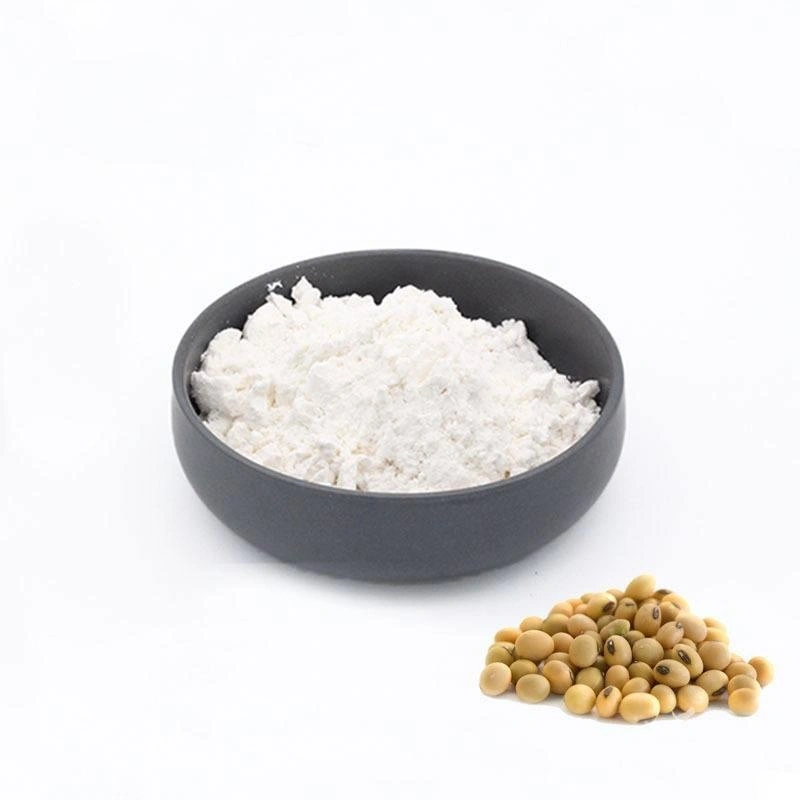- English
- French
- German
- Portuguese
- Spanish
- Russian
- Japanese
- Korean
- Arabic
- Greek
- German
- Turkish
- Italian
- Danish
- Romanian
- Indonesian
- Czech
- Afrikaans
- Swedish
- Polish
- Basque
- Catalan
- Esperanto
- Hindi
- Lao
- Albanian
- Amharic
- Armenian
- Azerbaijani
- Belarusian
- Bengali
- Bosnian
- Bulgarian
- Cebuano
- Chichewa
- Corsican
- Croatian
- Dutch
- Estonian
- Filipino
- Finnish
- Frisian
- Galician
- Georgian
- Gujarati
- Haitian
- Hausa
- Hawaiian
- Hebrew
- Hmong
- Hungarian
- Icelandic
- Igbo
- Javanese
- Kannada
- Kazakh
- Khmer
- Kurdish
- Kyrgyz
- Latin
- Latvian
- Lithuanian
- Luxembou..
- Macedonian
- Malagasy
- Malay
- Malayalam
- Maltese
- Maori
- Marathi
- Mongolian
- Burmese
- Nepali
- Norwegian
- Pashto
- Persian
- Punjabi
- Serbian
- Sesotho
- Sinhala
- Slovak
- Slovenian
- Somali
- Samoan
- Scots Gaelic
- Shona
- Sindhi
- Sundanese
- Swahili
- Tajik
- Tamil
- Telugu
- Thai
- Ukrainian
- Urdu
- Uzbek
- Vietnamese
- Welsh
- Xhosa
- Yiddish
- Yoruba
- Zulu
How is Beta Sitosterol Complex Made or Extracted?
Beta Sitosterol Complex is a significant plant-derived compound in the nutraceutical and pharmaceutical industries. This natural phytosterol has gained attention for its health benefits, particularly in supporting prostate health and managing cholesterol levels. Understanding how this beneficial compound is manufactured provides valuable insight into its quality, efficacy, and sustainability. The extraction process involves sophisticated methods that preserve its natural properties while ensuring purity for therapeutic applications.
What Are the Primary Sources for Beta Sitosterol Complex Extraction?
Plant-Based Sources with Highest Beta Sitosterol Content
Beta Sitosterol Complex extraction begins with identifying rich natural sources. Pine trees represent one of the most commercially viable sources, with their bark and needles containing substantial amounts of this compound. Other sources include soybeans, rice bran, wheat germ, corn oils, and various nuts and seeds. The China beta sitosterol complex industry has developed expertise in extracting this compound from pine species native to regions like Yunnan and Sichuan provinces. Many beta sitosterol complex factory operations have established sustainable harvesting relationships with forestry operations, allowing them to obtain pine materials that would otherwise be discarded as byproducts of lumber production. Research indicates that environmental factors can significantly impact phytosterol concentrations in plants, leading manufacturers to carefully select harvesting regions for optimal yield.
Technological Innovations in Raw Material Identification
Advanced analytical technologies now play a crucial role in identifying optimal raw material sources. Near-infrared spectroscopy, HPLC, and gas chromatography allow beta sitosterol complex factory operations to rapidly assess phytosterol content before processing. Leading China beta sitosterol complex producers have invested in these analytical capabilities, establishing quality control laboratories that accurately profile the sterol content of potential source materials. This analytical precision has translated into more consistent final products with standardized phytosterol profiles. The competitive advantage has contributed to China's emergence as a global leader in beta sitosterol production, with facilities capable of processing multiple source materials depending on seasonal availability.
Sustainable Harvesting and Environmental Considerations
Sustainability has become increasingly important in Beta Sitosterol Complex production. Manufacturers in the China beta sitosterol complex industry have implemented sustainability programs to ensure responsible sourcing of raw materials. These include reforestation initiatives and utilization of agricultural byproducts. Several major beta sitosterol complex factory operations now collaborate with soybean processors to recover phytosterols from soybean oil deodorizer distillate. Similarly, rice bran is increasingly sourced from rice milling operations. Progressive manufacturers emphasize full material utilization, extracting beta sitosterol while channeling remaining biomass into applications ranging from animal feed to biofuel production.

How Does the Extraction Process Ensure Purity of Beta Sitosterol Complex?
Solvent-Based Extraction Methodologies
Commercial Beta Sitosterol Complex production typically begins with solvent-based extraction techniques. This approach utilizes organic solvents to separate phytosterols from plant matrices. The process starts with plant material preparation—typically involving drying and grinding. The prepared material then undergoes extraction using solvents such as hexane, ethanol, or supercritical carbon dioxide. The China beta sitosterol complex industry has shifted toward more environmentally friendly solvents, with many beta sitosterol complex factory operations utilizing food-grade ethanol or supercritical CO₂. The solvent-phytosterol mixture undergoes filtration to remove plant particulates, followed by solvent recovery through distillation. The crude phytosterol extract then proceeds to subsequent purification stages.
Chromatographic Purification Techniques
Sophisticated chromatographic techniques achieve pharmaceutical-grade Beta Sitosterol Complex purity. Column chromatography represents the most widely implemented approach, separating beta sitosterol from other phytosterols based on differential affinities. Premium China beta sitosterol complex manufacturers have invested in advanced chromatographic systems, including automated flash chromatography and preparative HPLC. The purification process typically involves multiple steps, each optimized to remove specific impurities. Initial passes may focus on removing chlorophyll and lipids, while subsequent steps separate beta sitosterol from closely related phytosterols. This multi-stage approach ensures that the final product meets stringent purity specifications, often exceeding 95% beta sitosterol content.
Quality Control and Analytical Verification
The final stage involves rigorous quality control and analytical verification. Manufacturers implement comprehensive testing regimes that evaluate beta sitosterol content and potential contaminants. State-of-the-art analytical instruments enable precise quantification of both target compounds and potential impurities. The China beta sitosterol complex industry has made significant investments in these analytical capabilities, with many beta sitosterol complex factory operations maintaining accredited laboratories. Beyond analytical testing, quality management systems such as cGMP ensure consistent adherence to established production protocols. Many facilities now issue detailed Certificates of Analysis with each batch, documenting purity, phytosterol profile, and contaminant screening results.
What Are the Latest Technological Innovations in Beta Sitosterol Manufacturing?
Supercritical Fluid Extraction Advancements
Supercritical fluid extraction (SFE) technology represents a significant advancement in Beta Sitosterol Complex production. This approach utilizes supercritical carbon dioxide as the extraction medium, offering advantages including superior selectivity, absence of toxic residues, and reduced environmental impact. The China beta sitosterol complex industry has embraced this technology, with several beta sitosterol complex factory operations investing in industrial-scale SFE systems. By manipulating parameters such as pressure and temperature, manufacturers can selectively target specific phytosterols, optimizing beta sitosterol yield and purity. The efficiency of SFE systems continues to improve through engineering innovations such as counter-current extraction configurations and automated process control systems.
Enzymatic Processing and Biotechnological Approaches
Biotechnological innovations are revolutionizing manufacturing through enzymatic processing techniques. These approaches utilize specialized enzymes to enhance extraction efficiency and improve selectivity. For example, specific lipases can hydrolyze plant oils and release sterols from their esterified forms, increasing overall recovery rates. Progressive China beta sitosterol complex manufacturers have incorporated enzyme pre-treatment steps into their production processes, achieving extraction yield improvements of 15-30% compared to conventional methods. Beyond extraction enhancement, enzymatic processes enable the creation of specialized beta sitosterol derivatives with enhanced bioavailability. Some beta sitosterol complex factory operations now produce esterified beta sitosterol forms, which demonstrate improved absorption characteristics.
Green Chemistry Implementation and Sustainability Metrics
The Beta Sitosterol Complex industry has increasingly embraced green chemistry principles, redesigning production processes to minimize environmental impact. This includes improved solvent selection, energy utilization, waste minimization, and resource recycling. Leading China beta sitosterol complex producers have implemented comprehensive sustainability metrics to measure and improve their environmental performance. Many beta sitosterol complex factory operations now publish sustainability reports documenting their progress. Circular economy principles increasingly influence production facility design, with integrated systems that maximize resource utilization while minimizing waste generation. Water recycling systems now capture and purify process water for reuse, significantly reducing freshwater consumption.

Conclusion
Beta Sitosterol Complex extraction and manufacturing has evolved significantly, incorporating advanced technologies and sustainable practices. From identifying optimal plant sources to implementing sophisticated extraction methods and rigorous quality control, the industry continues to innovate. Chinese manufacturers have established themselves as global leaders through investments in cutting-edge technologies, analytical capabilities, and sustainability initiatives. These advancements ensure that Beta Sitosterol Complex products meet the highest standards of purity, potency, and environmental responsibility. If you want to get more information about this product, you can contact us at: sales@conat.cn.
References
1. Johnson, A.R., & Smith, P.D. (2022). Advances in phytosterol extraction: A comprehensive review of Beta Sitosterol processing. Journal of Natural Products Research, 45(3), 215-238.
2. Zhang, L., Wang, Y., & Chen, X. (2023). Supercritical fluid technology for Beta Sitosterol Complex purification: Industrial applications and future prospects. Food Chemistry, 392, 133294.
3. Patel, S., & Sharma, R. (2021). Sustainable sourcing of phytosterols: Environmental considerations in Beta Sitosterol production. International Journal of Green Chemistry, 23(8), 3462-3485.
4. Lee, H.J., Kim, S.Y., & Park, J.H. (2022). Analytical methods for quality assessment of Beta Sitosterol Complex: Current approaches and emerging technologies. Journal of Pharmaceutical Analysis, 12(4), 501-518.
5. Chen, G., Liu, H., & Zhao, W. (2023). Enzymatic enhancement of Beta Sitosterol extraction: Optimization of bioprocessing parameters. Biotechnology Advances, 51, 107909.
6. Rodriguez-Garcia, C., & Sanchez-Quesada, C. (2021). Plant sterols in nutrition: Structure, function and manufacturing processes of Beta Sitosterol Complex. Nutrients, 13(6), 2024-2046.
YOU MAY LIKE
